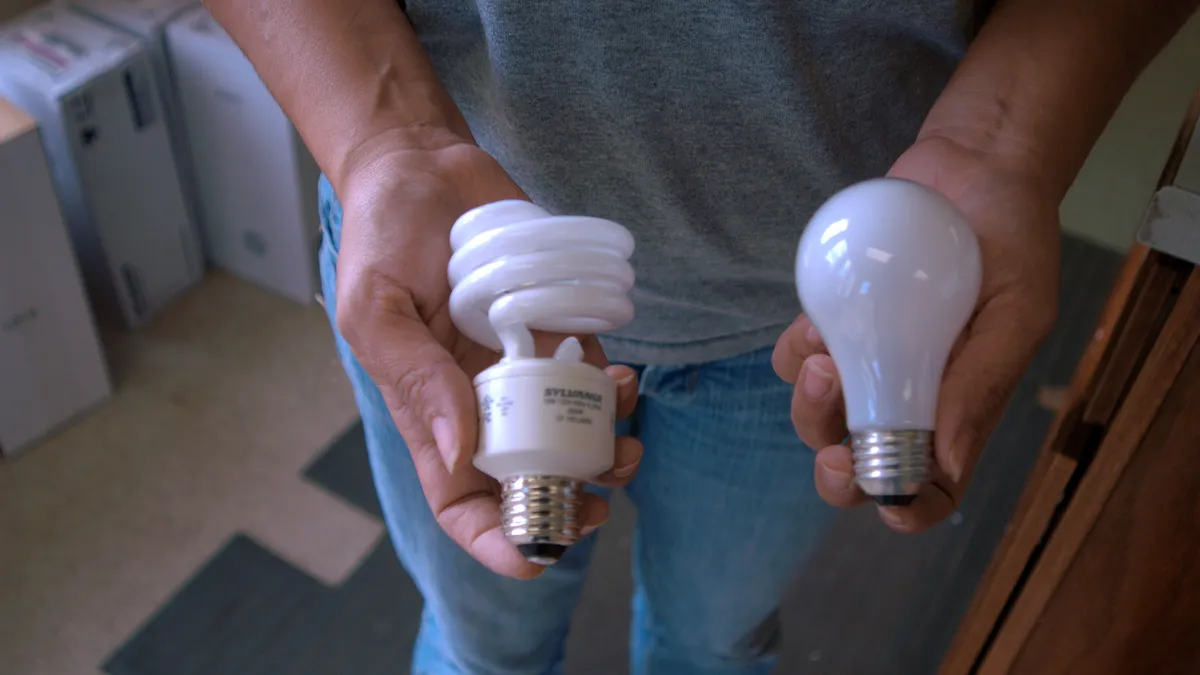Dive Brief:
- The U.S. Department of Energy (DOE) on Wednesday issued a notice of proposed rulemaking (NOPR) "removing" appliance efficiency rule provisions approved under the Trump administration that made it easier for manufacturers to receive waivers from product testing requirements.
- The 2020 change was one of several made by President Donald Trump, as part of a pledge to reduce regulations and rules on the energy sector and industry more broadly. DOE will accept comments on or before Aug. 27 and the Association of Home Appliance Manufacturers, which supported the Trump changes, says they intend to "actively engage" in the new rulemaking process.
- Efficiency advocates cheered DOE's proposal and called for other rule changes to strengthen the DOE's Appliance and Equipment Standards Program. The American Council for an Energy-Efficient Economy still wants to see action to undo Trump-era changes to rules for multiple appliances as well as standards for light bulbs.
Dive Insight:
The DOE under President Joe Biden continues to propose changes to efficiency rules that experts say would save consumers money on energy costs — despite warnings from manufacturers about the potential for higher appliance prices.
"In order to bring innovative, efficient products to market, manufacturers sometimes need to request permission from DOE to test a product using an alternative method if the existing method does not accurately measure the product's efficiency," AHAM Vice President of Regulatory Affairs Jennifer Cleary said in an email.
Part of the process involves manufacturers proposing an alternative for DOE's approval, said Cleary. "Historically, DOE has been slow to approve alternatives, making it hard to deliver these innovative, more efficient products to consumers quickly," she added.
The waiver process approved under Trump required DOE to make a decision on test waiver requests from appliance manufacturers within 45 days. If the agency fails to meet that deadline — and experts say the agency rarely moves that quickly — a six-month waiver automatically goes into effect.
Efficiency advocates say the Trump era change allows manufacturers to avoid government oversight, while manufacturers argue it addresses situations where there will not be effective energy consumption tests.
DOE is now taking steps to protect consumers, say advocates.
"This is a good proposal and it's important that the department finalize it soon to ensure consumers don't unknowingly end up with energy-wasting products," Andrew deLaski, executive director of the Appliance Standards Awareness Project (ASAP), said in a statement. "The department is ensuring a fair playing field for all the manufacturers and that's critical."
According to the NOPR, the agency is "proposing to remove the provision that interim waivers will be automatically granted if DOE fails to notify the petitioner of the disposition of the petition within 45 business days of receipt."
"Providing a longer, flexible timeframe that better reflects DOE's experience will allow DOE to complete the analysis required, while providing a realistic timeframe on which manufacturers can more reasonably rely," the agency said. "Accordingly, DOE proposes that DOE will make best efforts to respond to interim waiver requests within 90 business days."
The agency said that based on experience, the 90 days "would still represent an improvement in response time, and in most cases would allow DOE sufficient time for proper analysis, review, and testing."
DOE has also proposed reversing changes made to the "Process Rule" by the Trump administration, which experts say made it more difficult to strengthen energy saving standards. The agency reviews appliance standards every six years, but fell behind under Trump and as of March, 2021, had missed legal deadlines for 28 product standards, according to ASAP.
"There are several more Trump-era backward steps on efficiency that the Department should propose to undo," ASAP Senior Research Manager Joanna Mauer said in an email. Those include rules on light bulbs, dishwashers, clothes washers, dryers and gas furnaces.
"They have to get these finalized and ramp up progress on updating standards for the dozens of products this administration will need to tackle," Mauer said. "It's a big job. We'd like to see the administration begin proposing updates for overdue standards soon."














